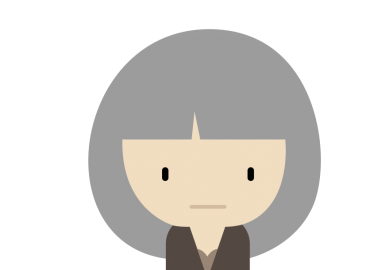Saul Ifenacin
Expand the elements to view the case or download a printable version with the big orange button!
You are an F1 working on the surgical ward. Mr Saul Ifenacin is a gentleman who has presented to the surgical admissions unit.
Please take a focused history of this patient’s long-term condition, with focus on their first admission. Please assess the impact the condition has had on their life.
Patient medications: Lisinopril 10 mg
You are Saul Ifenacin, a 60-year-old police officer who is close to retirement. You had planned a longer career in the police force, however your recent health problems have forced you to consider ending your career earlier than anticipated.
HPC: It all started roughly ten years ago when you went to the GP because you were tired and feeling a bit sick. He did some tests and found out that you had high blood pressure so he started you on a tablet for it. It didn’t really work for you so then he started you on another one. However, you decided to not take any of these tablets as they didn’t really help your symptoms. This went on for some time. You thought your body was getting a bit tired as you got older. You listened to your body instead and decided to stop doing as many physical things at work: for example you tend to do a lot more paperwork than field work. You weren’t worried about anything in particular as you had time to spend with your wife.
First admission Five years ago, you felt even more tired for a few months and despite doing less work, you seemed to be losing more weight. You were worried you had cancer at this point but refused to go to the doctor because “he didn’t care” – messing around with blood pressure tablets for years had damaged your confidence in that doctor.
It was then that you developed severe pain in your left flank region, which moved to your groin. You were admitted to hospital that they found out what was really going on: you have cysts on your kidney. Since your first admission where they did lots of tests, things have been slowly been deteriorating but that’s fine as you are glad you don’t have cancer.
Since then you’ve had been to hospital over six times because of kidney stones. However, your last admission a few months ago was the scariest one yet. You had a “subarachnoid haemorrhage”. You were in the pub with your mates and then suddenly you thought someone had taken a baseball bat and hit the back of your head. You felt sick and your mates got you to hospital immediately. Luckily, it was only a small bleed and you’ve been fine since then. You have occasional tingling in your fingers, but luckily nothing else. A small price to pay!
PMH: Apart from the high blood pressure, diabetes (diet managed) and the last admission for the subarachnoid haemorrhage, you count yourself lucky!
SH: You do not currently smoke or drink as you stopped both when you were diagnosed with your condition. Prior to this you smoked 10 cigarettes a day for 40 years. You live in a terraced house with your wife and your parrot, Arthur.
FH: Your father died from kidney cancer at 70. Apart from that, you have no family history of note.
DH and allergies: You don’t have any allergies. You take your medication as required. Your wife has to remind you sometimes, but you don’t think that you have missed any!
SE: No other symptoms.
A GI examination would be appropriate. Allow the student time to summarise, give a differential and discuss management of polycystic kidney disease or more generally chronic kidney disease.
An appropriate differential diagnosis would sound something like: “My first differential diagnosis would comprise of a renal disorder, specifically polycystic kidney disease. This is mainly due to the combination of constitutional symptoms, such as fatigue and weight loss, with recurrent UTIs and flank pain. The patient also describes a history and family history of subarachnoid haemorrhage, which is a known complication of polycystic kidney disease. It was also helpful that the patient pointed out that he has cysts on his kidneys! Alternative diagnoses to consider would be other renal causes, such as renal cell carcinoma, or recurrent UTI in an adult male.”
Discussion points - What are the different causes of chronic kidney disease? - What is dialysis? What different types of dialysis exist? - Are you aware of any medications which can be harmful to the kidney? - What other complications are associated with polycystic kidney disease? - What complications are associated with renal failure?


